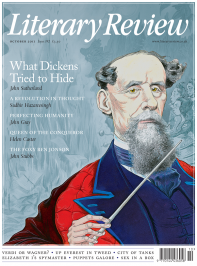Jonathan Sumption
Hammer of the French
Edward III
By W Mark Ormrod
Yale University Press 644pp £30
Edward III earned the loyalty of his subjects by behaving as kings were supposed to behave. He cut a fine figure. He led his armies in successful wars. He spent money generously. And, until the end of his reign, he surrounded himself by men who conformed to the contemporary stereotypes of leadership, not the parvenus favoured by his father and grandson. Venerated as the greatest warrior of his day, victor of Sluys and Crécy, conqueror of much of western France, and founder of the Order of the Garter, Edward’s posthumous reputation cast a shadow over his successors, only one of whom, Henry V, was ever able to live up to the model. A century and a half after his death, Henry VIII, the last English king to toy with the idea of conquering France, consciously modelled himself on his famous ancestor. In the 1630s, officials copied documents from the public records to discover how it had been done. Joshua Barnes, whose biography of 1688 stood for nearly two centuries as the standard account, beatified him as ‘the best King, the best Captain, the best Lawgiver, the best Friend, the best Father and the best Husband in his days’.
More recently, Edward’s posthumous reputation has taken a knock. The Victorians regarded him as a brute and the idea has stuck. Bishop Stubbs condemned him for everything which Edward’s contemporaries had admired. ‘Ambitious, unscrupulous, selfish, extravagant and ostentatious’, he intoned; the only redeeming feature of Edward’s ‘long and

Sign Up to our newsletter
Receive free articles, highlights from the archive, news, details of prizes, and much more.@Lit_Review
Follow Literary Review on Twitter
Twitter Feed
How to ruin a film - a short guide by @TWHodgkinson:
Thomas W Hodgkinson - There Was No Sorcerer
Thomas W Hodgkinson: There Was No Sorcerer - Box Office Poison: Hollywood’s Story in a Century of Flops by Tim Robey
literaryreview.co.uk
How to ruin a film - a short guide by @TWHodgkinson:
Thomas W Hodgkinson - There Was No Sorcerer
Thomas W Hodgkinson: There Was No Sorcerer - Box Office Poison: Hollywood’s Story in a Century of Flops by Tim Robey
literaryreview.co.uk
Give the gift that lasts all year with a subscription to Literary Review. Save up to 35% on the cover price when you visit us at https://literaryreview.co.uk/subscribe and enter the code 'XMAS24'